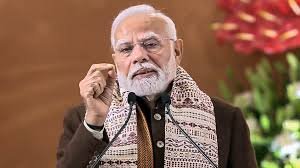India and the United Kingdom have signed a historic Free Trade Agreement (FTA) in the presence of Prime Minister Narendra Modi and his UK counterpart Keir Starmer. This marks India’s most comprehensive trade pact and the UK’s most significant post-Brexit economic agreement.
Under the deal, tariffs on British luxury cars like Jaguar, Land Rover, Rolls-Royce, Aston Martin, and Bentley will drop from over 100% to just 10%, making them significantly more affordable in India. Duties on Scotch whisky and gin will also be slashed—from 150% to 75% immediately and down to 40% over the next decade. Other UK products such as chocolates, cosmetics, soft drinks, and medical devices will see steep tariff reductions, with average duties falling from 15% to around 3%.
For India, the FTA offers sweeping access to the UK market, with 99% of Indian exports—including textiles, pharmaceuticals, leather goods, gems, marine products, and engineering goods—gaining duty-free entry. Sectors such as processed food, chemicals, and seafood are expected to benefit greatly, potentially driving a sharp rise in Indian exports.
The economic impact is expected to be massive: bilateral trade is projected to grow by $34 billion annually by 2040, and the UK foresees a £4.8 billion GDP boost. The agreement also includes provisions for Indian professionals—from chefs to yoga instructors—to work in the UK with relaxed visa rules, along with social security exemptions for up to three years.
The FTA sets the stage for deeper bilateral cooperation in clean energy, financial services, climate action, defence, and security, under the shared India–UK Vision 2035. PM Modi hailed the deal as a “strategic leap forward,” while PM Starmer called it a “major win” that would create jobs and strengthen ties between the two democracies.




